CALL FOR TENDER – Subcontracting external expertise
Open call for tender for research on the role of social partners in preventing third-party violence and harassment at work
Date of publication on the project partners’ website: 02 March 2021
Deadline for submissions: closed
TENDER SPECIFICATIONS FOR SUBCONTRACTING EXTERNAL EXPERTISE
1. Background
The research being contracted is part of a project entitled The role of social partners in preventing third-party violence and harassment at work, which has received financial support from the European Commission under budget line 04.03.01.08 and which runs until 28 February 2023.
The project is coordinated by the European Federation of Public Service Unions (EPSU) and involves HOSPEEM, CEMR, CESI as co-applicants and ETF, ETNO, ETUCE, EUPAE, UITP as associated organisations. The project aims to assess the effectiveness at the national level of the EU Multi-sectoral social partners’ guidelines to tackle and prevent third-party violence and harassment related to work (2010), hereafter the Guidelines.
It will identify areas for improvements and explore possibilities for reviewing the Guidelines’ content and nature considering recent legislative developments and the ILO Convention 190 on Violence and Harassment (2019). It will also aim to be an awareness-raising tool on a gender-sensitive approach to violence and harassment at the workplace.
It will include a mix of capacity-building among EU sectoral social partners and evidence-based policy recommendations addressed to the project partners, their members, and public authorities. It will consist of two European conferences with sectoral break-out discussions and seven webinars. The project focuses on public services, i.e., government, hospitals, education, public transport, supported by examples drawn from the private sector (telecoms), allowing to compare sectoral specificities and produce general policy recommendations. All are signatories to the Guidelines except public transport and telecoms, which have their sectoral agreements.
2. Purpose of the contract
Support is being sought from a researcher or a team of researchers to help facilitate the project run by the EU social partners EPSU, HOSPEEM, CEMR and CESI (project applicants). The contractor(s) will carry out comparative research on the prevalence and causes of third-party violence and harassment in the targeted sectors across the EU, legislative and social partner responses and assessment of the Guidelines’ effectiveness. The research will help social partners draw up their conclusions on how to improve the Guidelines’ implementation and, if necessary, based upon evidence, the guidelines’ content and nature. They will be in close contact with the project applicants via the Steering Group to ensure that the appropriate initial research is prepared and presented in due course. The final research report is useful for European organisations and their affiliates to improve preventive and response measures. The researchers will also assist with the organisation of the project webinars and conferences and with the coordination of the project to ensure practical outcomes.
3. Tasks to be performed by the contractor
The role and responsibilities of the researcher(s) and the preferred methodology for executing the tasks will be described in the following sections:
3.1 Research outline
The research will provide an overview of the current situation and draw up recommendations in close consultation with the project partners. It will examine:
- Effectiveness and usefulness of the Guidelines in the abovementioned sectors and comparing with the situation in the two sectors which apply other sectoral instruments;
- Relevant legislative, collective agreements and other instruments such as the ILO Convention 190;
- The relationship between external and internal violence and harassment and whether both should be tackled separately;
- Risk factors, e.g., human and material resources, dealing with vulnerable citizens, handling cash, quality and availability of services, discrimination (real or perceived), type of employment contracts, social cohesion at the workplace, working alone, digitalisation, sparse social dialogue, outsourcing, broader socio-economic factors;
- Protection of and compensation for victims of violence and harassment and sanctions of perpetrators;
- Preventive instruments, such as legislation, collective bargaining, data collection, risk assessments, reporting and follow-up, training of workers and management, health and safety and labour-related bodies.
3.2 Description of tasks
- Participating in the project partners’ Steering Group meetings, the seven webinars and two conferences;
- Assisting in the organisation of the webinars and conferences. This may include the moderation of various sessions during the events.
- Liaising with the project partners in exploring and finding direct or indirect potential contacts from relevant employers’ organisations and trade unions in targeted countries and sectors to conduct comparative research;
- Contacting representatives from national social partner organisations in the targeted sector and providing information on the project in cooperation with the respective project partners;
- Drafting the survey addressed to national social partner organisations in the sector in the targeted countries after liaising with the project partners;
- Identifying good practices from national social partners after liaising with the project partners;
- Conducting targeted interviews/ testimonials with key opinion leaders of targeted sectors after liaising with the project partners;
- Collecting and organising responses to the survey;
- Drafting the content of the research report based on three main outcomes: 1.) responses collected via the survey, 2) information provided by participants and speakers during the webinars and conferences and 3) desk research;
- Presenting the draft research report at the first conference;
- Finalising the research report in coordination with project partners;
- Presenting the final research report at the second conference.
3.3 Guidance and indications on tasks execution and methodology
The project will consist of comparative research on the prevalence and causes of third-party violence and harassment at work in the targeted sectors across the EU, legislative and social
partner responses and assessment of the Guidelines’ effectiveness. The researchers are expected to conduct quantitative research, such as a working-population based survey taking into account national specificities of the various sectors, as well as already
existing European databases, such as the European Working Conditions Survey and the European Survey of Enterprises on New and Emerging Risks.
The project partners foresee that the targeted countries be spread across the European Union, with two countries per region (North, East, South, Central and West). The targeted sectors correspond with those covered by the project partners, such as education (i.e. secondary schools), hospitals, prisons, employment services, urban public transport and administrative functions in local regional governments, after consultation with the researchers. Further to the quantitative analysis, the researcher should conduct at least four semi-structured or open-ended interviews with key opinion leaders in their respective sectors, which will provide direct examples of affected sectors. The interviews will be for communication purposes of the project applicants.
4. Expertise required
- At least three years of experience in the fields of occupational safety and health, including psychosocial risks, third-party violence and harassment at work, and gender equality, preferably with an understanding of national and European social dialogue;
- Familiar with the Multi-sectoral Guidelines, ILO Convention 190 and other relevant European and international instruments regarding prevention of violence and harassment at work;
- The researchers should be or be able to become familiar with the project partners’ publications on third-party violence.
5. Timetable
The project duration is from 1 March 2021 until 28 February 2023. The draft research report must be made available no less than two weeks before the first conference. The researchers will present and test initial findings at the mid-term technical conference on 19 November 2021 (date TBC). They will use them to finetune research angles and carry out targeted interviews of project delegates. The researcher should finalise the draft of the research four weeks before the political conference on 25 November 2022 and finalise the report by 1 December 2022, taking into account the proceedings of the webinars and both conferences.
6. Price
The total budget for the research is 35 000,00 EUR (all taxes and charges included). The contractor’s travel and accommodation expenses to attend any of the project events and meet with the project partners will be covered separately from the project’s overall travel and accommodation budget.
7. Payments
EPSU will sign a contract with the subcontracted researcher(s). Payments will be made in three instalments depending on the contractors carrying out the relevant stages of the work in accordance with the contract. The first payment of 20% of the contract value on the contract’s signature, a further payment of 40% of the contract value on completion of initial findings of the research two weeks before the mid-term technical conference on 19 November 2021, and a final payment of 40% upon completion of the research report by 1 December 2022.
8. Selection criteria:
- Verifiable expertise, experience and skills, as required and described above;
- Proven knowledge/ evidence/track record of research (supported by publications, academic articles etc.) on sectoral social dialogue, in particular focusing on the targeted sectors;
- Respect of the budgetary constraints and timeline.
9. Award criteria
The contract will be awarded to the tenderer whose offer represents the best value for money – taking into account the selection criteria. The principles of transparency and equal treatment to avoid any conflict of interest will be respected. It should be noted that the contract will not be awarded to a tenderer who receives less than 70% on the selection criteria.
10. Content and presentation of the bids
Tenders must be written in English. They must be signed by the tenderer or duly authorised representative and legible so that there can be no doubt about words and figures. Tenders must be clear and concise, demonstrating that they are able to meet the requirements of the specifications. All tenders must include at least two sections:
i) Technical proposal
The technical proposal must provide all the information needed for awarding the contract, including:
- Description of relevant professional experience with an emphasis on the specific fields covered by invitation to tender;
- All information and documents necessary to enable the project partners to appraise the bid based on the selection and award criteria set out above;
- A detailed CV of the expert(s) involved in the project activities;
- Specific information concerning the proposed methodology for delivering the tasks listed in part 2.
ii) Financial proposal
Prices of the financial proposal must be quoted in euros, including if the sub-contractor is based in a country that is not in the euro-area. As far as the tenderers of those countries are concerned, they cannot change the bid’s amount because of the exchange rate evolution. The tenderers choose the exchange rate and assume all risks or opportunities relating to the rate fluctuation. Prices shall be fixed and not subject to revision during the performance of the contract.
11. Selection of the bids
Offers must be received within 30 days of the date of publication of this call for tender by EPSU, i.e., by 2 April 2021. This call for tender is closed.
EPSU also has set up a page for this call for tender.
This project has received financial support from the European Union
*** Back to the main project webpage ***

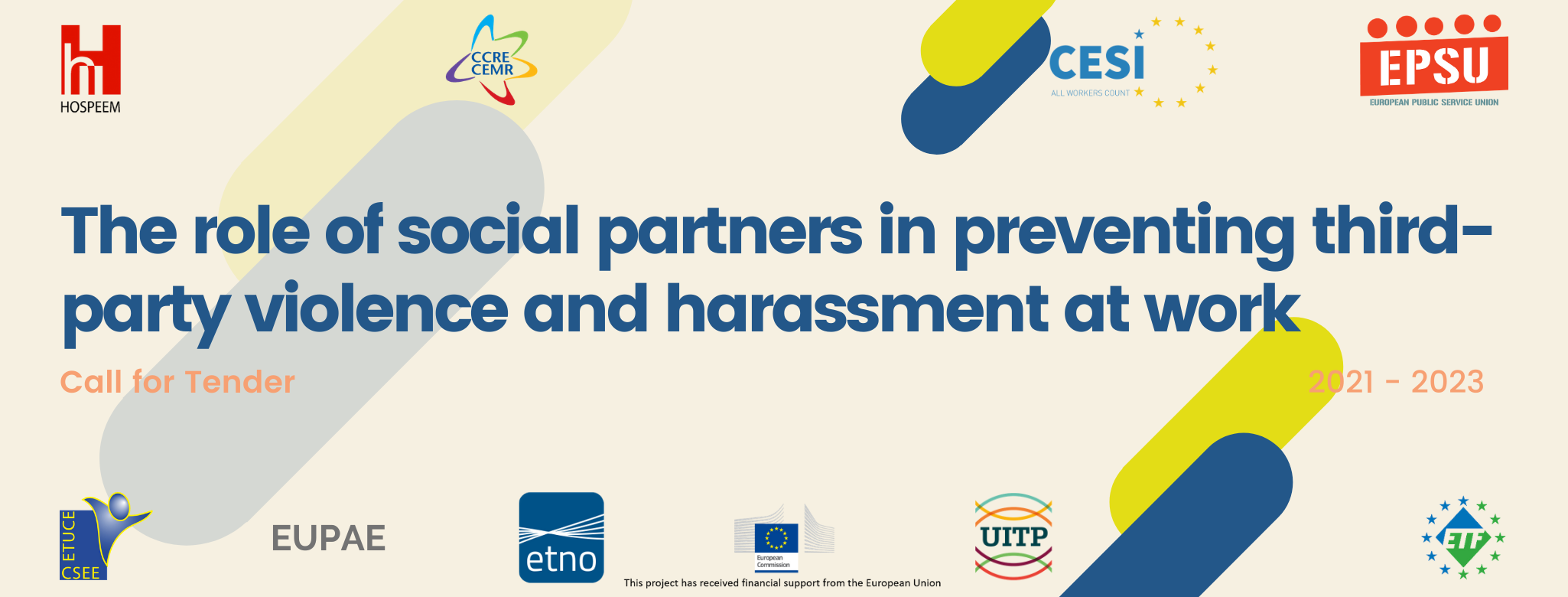
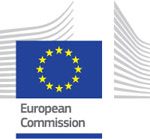
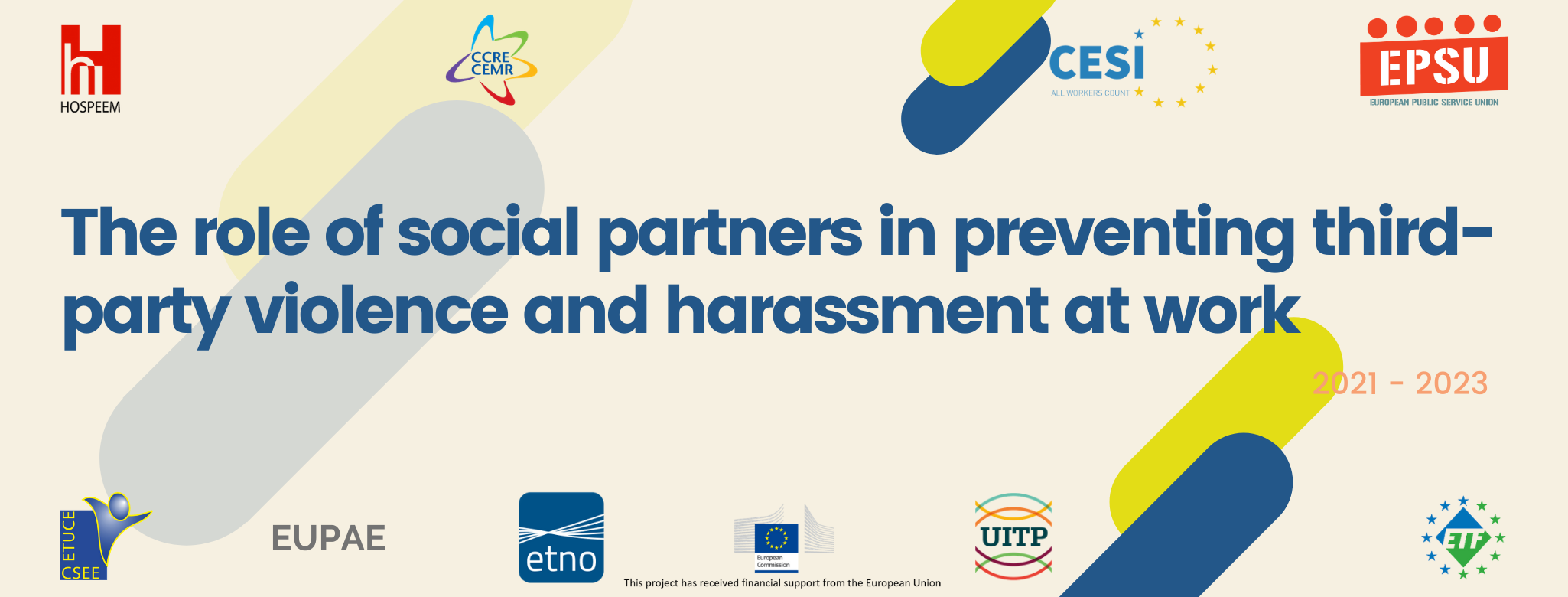

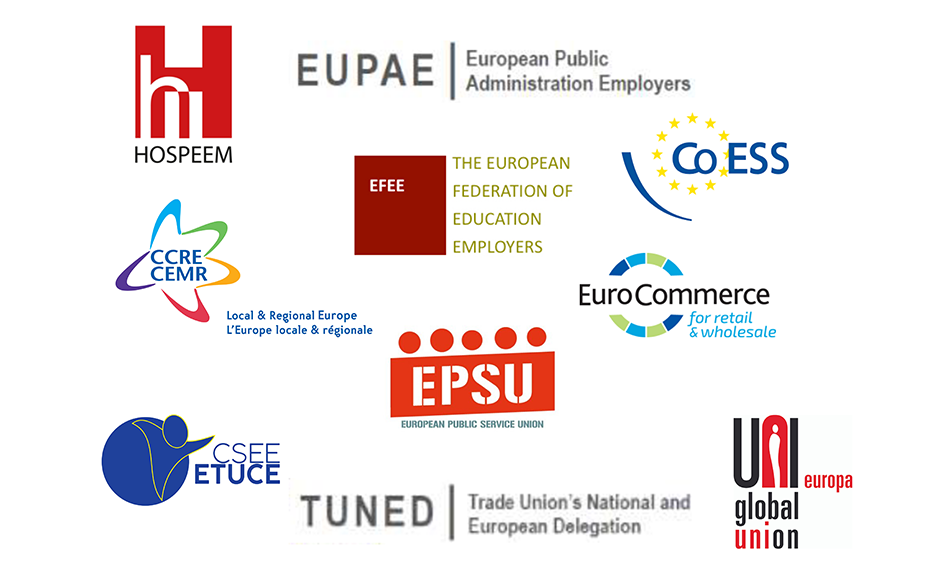
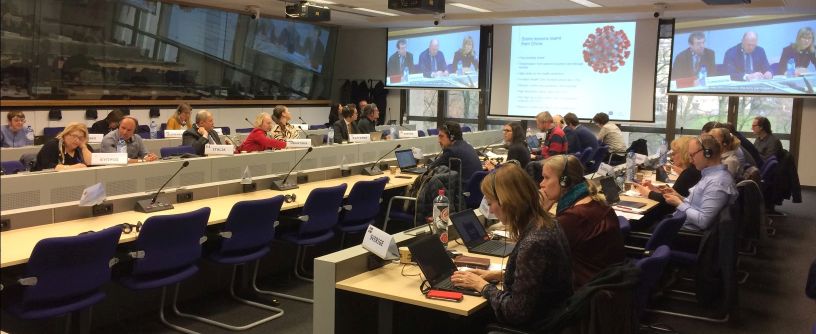
Recent Comments